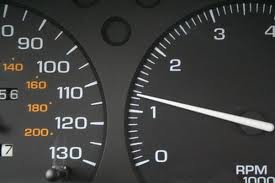Categories
 In light of the recent rises in gas prices, it is important to remember that how you drive can affect your vehicle’s fuel economy (MPG). However, you have to know the difference between a good driving tip and a bogus one in order to really slash your gas costs.
In light of the recent rises in gas prices, it is important to remember that how you drive can affect your vehicle’s fuel economy (MPG). However, you have to know the difference between a good driving tip and a bogus one in order to really slash your gas costs.
Unfortunately there is a lot of confusion about certain driving and vehicle issues. Let’s try to clear the air on a few driving myths.
Driving Myth #1:
1) Increase Tire Pressure. To get the most out of a full tank of gas, you should pump up those tires.
The Reality: Yes, it’s true that driving on under-inflated tires can cost you up to 3.75% in fuel economy. However, over-inflating tires can actually be dangerous. Have you ever seen a blow-out on the freeway? Drivers definitely don’t want that to happen. Tires that are overinflated have trouble getting a grip on the road, which can easily cause an accident.
Proper tire inflation is important for the safety and longevity of your tires. Although properly inflated tires won’t provide a huge amount of fuel savings, every little bit counts.
Driving Myth #2:
2) Keep the Engine Running. Turning the car on and off is bad for the engine and uses up a lot of gas.
The Reality:
No! This is not true. Today’s modern fuel-injected vehicles are efficient and don’t waste gas during start-ups anymore. Actually, many states have passed anti-idling laws for commercial vehicles over the past few years in an effort to reduce air pollution.
For example, California idling laws say that heavy-duty diesel engines made in or after 2008 are required to have a system that automatically turns the engine off within five minutes of idling. For school buses in California, idling is limited to a maximum of five minutes for locations further than 100 feet from schools, including bus stops and school-trip destinations.
It is very important to reduce idling, in ways like tuning your vehicle off whenever you are not actually driving. For example, if you pull up to a curb, or are stuck waiting for a train, don’t sit with the engine running. In fact, idling can cost you up to half a gallon of gas an hour, so turn off the engine if you’re not going anywhere.
For companies with a fleet of vehicles, reducing vehicle idling can save a ton of money. Did you know that each year fleet vehicles burn 8.9 billion gallons of fuel annually due to unnecessary idling and speeding? This costs companies an estimated $2400 per vehicle annually. A GPS fleet management system can identify which vehicles are wasting time and money on excessive idling and speeding.






